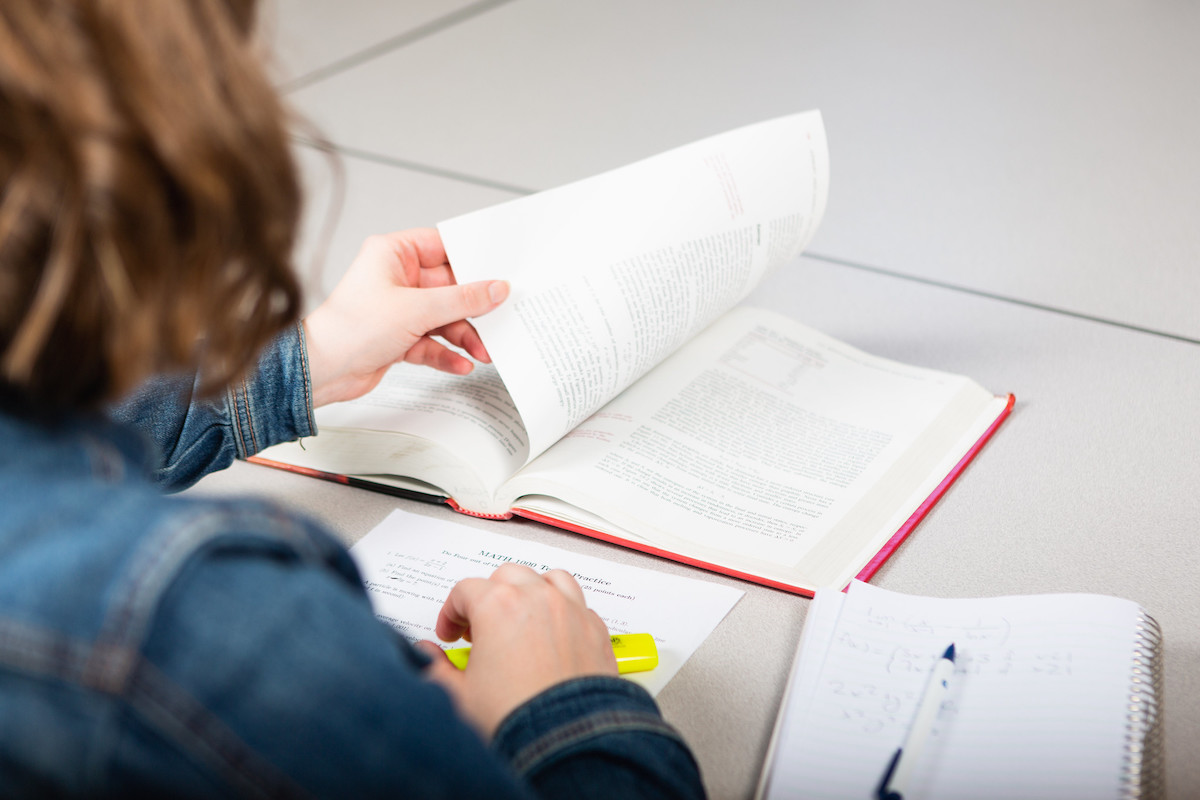This article was updated from an earlier version from 2018. Certain tools and techniques may change, but the basics of studying never go out of style.
1. Organize
It’s hard to get anything done when you’re not sure what you have to do! Before you dive into any studying, sit down and make a list of assignments to do and key concepts to review. Keep due dates in mind to prioritize what needs to be tackled first. This will help you make a plan of how much you want to get done each day and help you stick to it!
Pro tip: Be realistic about what you can actually accomplish in a day. A whole semester of organic chemistry is impossible to learn overnight.
2. Ask for help
If you’re struggling with your courses or just want to improve your techniques, Dal has plenty of resources to help. Talk to your profs and/or TAs during their office hours and attend review sessions. Many departments offer additional help, such as the Computer Science Learning Centre. If you’re looking for more general help check out workshops put on by Studying for Success in Halifax or Student Success in Truro.
Pro tip: If you’re feeling confident on your study skills but need some help with final papers, check out the Writing Centre. They offer one-on-one support to improve your work in any subject!
3. Take breaks
This is important!! Even the most studious students can’t study nonstop for three weeks straight. Taking well-timed breaks can actually increase your productivity. Get together with friends, go explore the neighbourhood, or go to the gym for a workout. Taking a break is important for your mental health and is crucial for academic success.
Pro tip: Try to avoid social media as your “break”. While scrolling TikTok can be enthralling, being present in the real world is beneficial for your state of mind.
4. Listen
If your prof records his/her lectures, go on Brightspace to review the material. If not, YouTube is a great resource for understanding complex topics.
Pro tip: Jot down key terms during the videos to stay focused on the material. It also helps to remove potential distractions from your environment.
5. Read
Instead of using your textbooks as a TV stand, try putting them to good use. Doing the required readings can help enhance your understanding of the material. Not sure where to start? In Halifax, meet with a personal study coach. In Truro, meet with a peer advisor or tutor.
Pro tip: Read in 20–30 minute intervals then take a mini break to reward yourself with a snack or a quick stretch.
6. Rewrite
Handwritten notes are more helpful for remembering material than typed notes. Either way, it’s important to rewrite your notes. Highlighting and/or colour-coding can help key concepts stick out when you’re reviewing. But be careful: when we highlight we have a tendency to not really think about the information. Try to ask ‘why’ to make it more effective or test yourself on the material you highlighted.
Pro tip: Try rewriting material in a different way. This could be writing full paragraphs instead of bullet points, or just stating a concept differently. Active note-taking will help with integrating the material.
7. Conceptualize
If you’re more of a visual learner, try making a concept map! A great way to do this is taking blank pieces of paper to write everything out in a spatial arrangement. From cellular pathways to economic principles, this technique is helpful for understanding the big picture. There are plenty of concept mapping apps online that offer free trials.
8. Memorize
Understanding material is the overall goal, but memorizing can help you get there! For this technique, flashcards will be your best friend. Not only do you have to rewrite your notes to make them, but they’re easily accessible for quick study sessions. Handwrite your flashcards or use online tools such as Quizlet to keep your studying with you at all times!
Pro tip: Make sure you actually test yourself when using your flashcards, don’t just passively read the question and look at the answer. If you review your flashcards before going to bed, your brain is able to consolidate information while you sleep.
9. Collaborate
Studying is more fun when you have people to suffer with you! Seriously though, take advantage of the different ways your friends think and learn material. Compare notes with people in your classes. Chances are someone interpreted a concept in a different way.
Pro tip: Have someone else explain a difficult concept to you. It can help you understand the material.
10. Explain
In order to have a true grasp on the material, you should be able to explain it to others. There are different ways to use this technique to benefit your studying. You can get together with people in your class and discuss concepts and ideas together. You can also find friends outside of class who are willingly to listen to you explain concepts.
Pro tip: Don’t be afraid to explain concepts out loud to yourself. However, this does work best when you’re home and not in quiet study areas.
Bonus:
Whatever you do, just make sure you don't cheat on your exams or assignments. You'll get found out and it won't end well. Put in the extra work and do it on your own. You got this!


